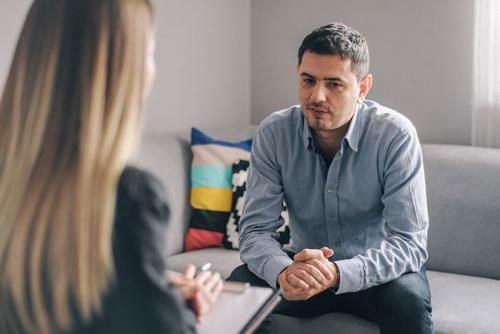Now more than ever it’s important to think about self-care and keeping a healthy mindset.
While so many mental health and health care professionals are working around the clock to support others, now is also the time that we—the clinical community—need to take care of our own mental health and that of our colleagues. We are all working hard to balance the stress of an uncertain future regarding our families and patients, and we need to acknowledge that there is no shame in admitting that we are stressed and tired and in need of support.
On Thursday, April 2, Blaise Aguirre, MD, discussed a few proven methods used to deal with stress during times like these.
He also offered a response to viewers’ questions about clinician self-care.
Tips for Clinician Self-Care
How do I comfort patients and colleagues when I am feeling so uncertain and scared?
This is such a good question because when you are that uncertain and that scared it’s probably not the time to comfort patients and colleagues—it won’t come through as genuine.
Recognize your own uncertainty and your own fear by practicing your own regulation and attaining Wise Mind. You will get to a lesser degree of uncertainty and fear, and it will transmit co-regulation and a greater sense of calm.
Learn more about Wise Mind and how to apply it in Aguirre’s webinar Clinician Self-Care in the Time of COVID-19. Watch on demand.
How can I help minimize anxiety at home when my loved ones are worried about me—or I am worried about a loved one’s exposure?
This is really tough. By practicing our own sense of centeredness and calm, we’ll transmit centeredness and calm to those around us. You can also be honest about your own fear but keep practicing what you need to. Stay physically distant, wash your hands, and wear masks where indicated.
Try these five ways to help reduce anxiety during the outbreak.

I’m not a health care worker, but my loved one is. How can I provide support to them in such a worrisome time?
Pay attention to what’s important—are there little touches that you can do, a small recognition of the work they’re doing, how they’re trying to help other people? It’s not that others are sitting around—everyone is putting in effort, but even just a small nod of recognition can make a difference.
How can I talk to my social circles about emergency plans without upsetting them?
We see this a lot. There’s this family that’s allowing their kids to do this. There are things I want to do but can’t. People are closer than six feet.
It’s good to share with friends and family what you’re going to do and what your plans are, and know that your plans may be different than other people’s. They might be upset with you, and this may be a time to regulate and say, “You know, we’re uncertain at this time, and to be honest, these are the plans we’re making as a family.”
Know what’s part of your plan. People may be upset one way or another, or they might become upset. You can tell them you love them and that you respect what they’re asking for themselves, but you’ll work within what you also feel is reasonable.
Do you have any advice for helping minimize my workload or setting boundaries around my workday?
Now that working from home is more common, it probably feels like you are working nonstop and so are your colleagues.
Be fair to yourself and your colleagues. This means recognizing that you are under incredible stress and that you have to find a way to be your most effective self.
Don’t over-apologize for the fact that you might be struggling and instead stick to your values of self-care as a first step in being able to help others.
Set a stop time each day and stick to it. If you are having a hard time sticking to a stop time, have your friends and family help by allowing them to interrupt you and whatever you are doing after your agreed-upon stop time.
COVID-19 Mental Health Resources
McLean is committed to supporting our communities during the coronavirus outbreak.
Visit McLean’s COVID-19 mental health resources page to find access to more information that can help you or your patients.